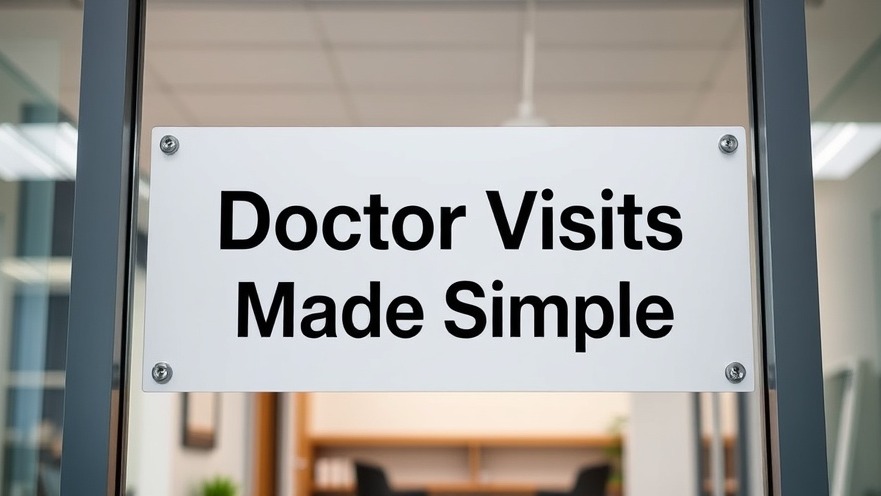
How to Optimize Your Doctor's Visit: The Ultimate Guide.
In today's bustling world of healthcare, it's easy to feel overshadowed by the complexities that come with visiting the doctor. As the medical landscape evolves, understanding how to enhance your time with healthcare professionals has never been more crucial. Preparing for your appointment can transform a hurried visit into a meaningful dialogue that ensures your health needs are met.
In 'How to Get the Most Out of Your Visit,' the discussion dives into crucial preparation tips and insights aimed at enhancing your healthcare experience, prompting us to explore further strategies.
Understanding the Importance of Preparation
Before stepping foot in a doctor's office, having a game plan is essential. This involves knowing your destination, securing transportation, and gathering relevant documents. Always bring your photo ID and insurance card for verification, and ensure your demographic information is up to date. Don't shy away from asking your provider if you need assistance, including translation services if necessary. It’s vital to ease communication barriers, especially when every word can play a critical role in your care.
Medication Details: The Key to Clear Communication
When it comes to discussing medications, clarity is vital. Bring the bottles or even images of your prescriptions to provide your physician with accurate information. Keep a list of all current medical conditions and any other specialists you've seen. This transparency allows your doctor to access your medical history effectively and can expedite any necessary referrals or treatments.
The Significance of Having a Trusted Companion
Another tip for maximizing your visit is to bring a family member or friend along. Their presence can provide emotional support during what might be a nervous experience and help retain the information discussed. They can remind you of questions you may have overlooked and take notes, ensuring every detail is captured.
Don’t Hesitate to Ask Questions
Remember, your questions are crucial. Write them down ahead of time so you don't forget to address any important concerns. Whether you're learning about a new diagnosis or understanding treatment plans, your physician’s role is to clarify what’s happening with your health. Don’t hesitate to ask them to explain things in simple terms or provide examples. There’s no such thing as a dumb question—your health deserves clarity.
The Acronym You Need to Remember: PQRST
When you're confused about your diagnosis or treatment, keep the PQRST acronym handy:
P - Problem: Ask what your specific diagnosis is.
Q - Quantify: Determine the severity and possible implications.
R - Result: Understand which tests or assessments you need.
S - Symptoms: Learn what signs you should monitor.
T - Treatment Plan: Discuss the next steps in your care.
Utilizing this acronym will help guide your conversation and ensure all facets of your health are covered.
After Your Visit: Don’t Forget the Details
As your appointment wraps up, ensure you receive an after-visit summary. This valuable document outlines what the appointment entailed, including vital signs, referrals, and any instructions regarding tests or medications. Hold onto this summary; it could prove beneficial during follow-up visits or if additional specialists need to be contacted. Consistency in follow-up and keeping track of appointments or changes are keys to successful long-term health management.
Final Thoughts on Being an Active Participant
Ultimately, advocating for your health and understanding the healthcare process are mutual responsibilities for both patient and provider. Don’t forget that your voice matters in every step of the medical journey. Engage wholeheartedly with your healthcare team, ask questions, and make it a priority to comprehend every nuance of your health. A healthy partnership with your doctors can lead to better health outcomes and improved quality of life.
 Add Row
Add Row  Add
Add 




Write A Comment